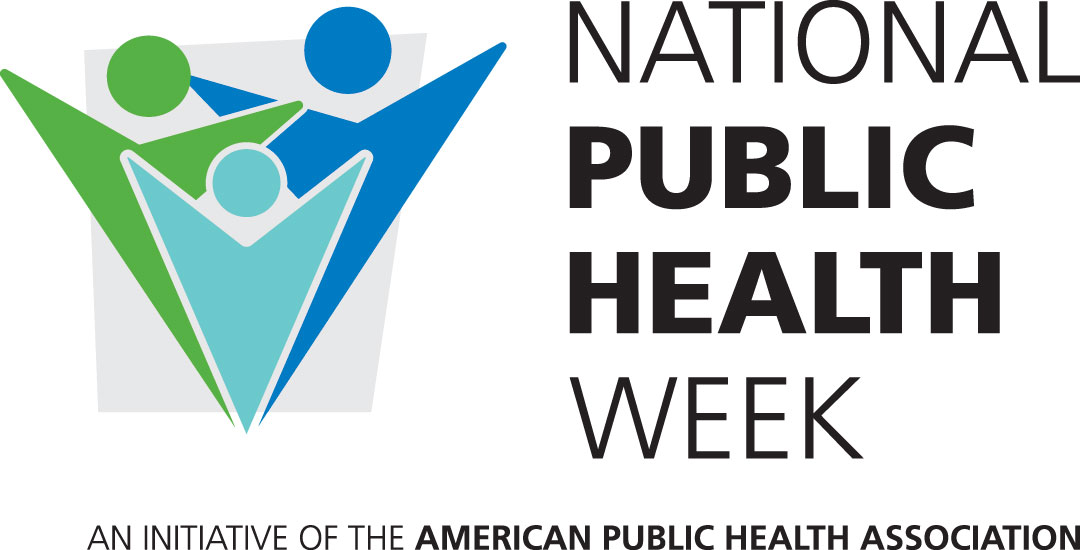Building Bridges to Better Health – NPHW 2021

This week, communities across the country are celebrating National Public Health Week (NPHW) led by the American Public Health Association (APHA). This annual observance recognizes the invaluable work of public health professionals in keeping our communities healthy and safe. As we lift up the contributions of our public health officials, we are also reminded of the importance of continuing to improve existing health systems and rebuild where there are shortcomings. This year, the NPHW theme, “Building Bridges to Better Health,” invites everyone to join in support of public health at a time when widespread recognition is greatly needed.
The COVID-19 pandemic has both illuminated and exacerbated our nation’s deficits in public health preparedness and infrastructure. The pandemic has shown how race, place, and income can affect a person’s health and survival. According to our most recent public opinion survey, more than half of Americans feel it is very or somewhat important to conduct medical or health research to understand and eliminate these disparities. Seven in 10 say they agree with the statement, “The COVID-19 pandemic has revealed that major changes are needed to our public health systems.” It will take a significant investment in resources, time, tenacity, and a great deal of cooperation to make needed improvements. Public health encompasses nearly every aspect of life, from equity in health outcomes to sufficient Internet access to scientific literacy and trust.
One of the many kinds of bridges we need to build to improve public health and well-being starts with better internet access. Inequitable access to high-speed broadband during the pandemic could have lasting impacts on the education of children and economic outcomes of remote workers. According to a recent article from the American Journal of Public Health, the lack of access to the internet influences each of the six social determinants of health (health care system, economic stability, education, food, community and social context, and neighborhood and physical environment) as defined by the American Medical Association. Inequities in access to credible information such as details of local stay-at-home orders, special store hours for vulnerable populations, and vaccination availability can also influence health outcomes. Notably, Black families and those living in rural communities are more likely to be without access to high-speed internet, which is now a requirement for school and work. In a recent public opinion survey commissioned in August 2020, nearly two-thirds of those surveyed said they were very or somewhat concerned that approximately 14% of children did not have home Internet access. When we asked in January 2021 what priority respondents would assign to ensuring universal broadband access, more than three-quarters said it should be a medium priority or higher.
Another type of bridge we need to build to strengthen public health isn’t technological but more social and psychological: we need to reach those who currently distrust the recommendations of scientists. While in our most recent public opinion survey nearly half (46%) of Americans say they have more trust in science than they did a year ago, one in five Americans say they have less trust in science. We know from the past year, despite strong evidence of the benefits of mask-wearing and social distancing to themselves and others, some people did not believe the warnings from public health officials. We need to better understand how to break down barriers and reach those whose trust in science will be essential to the process of fortifying our public health system.
There are many more areas of public health that need bridge-building as well as attention from policymakers to improve funding. According to a 2019 report from Trust for America’s Health, less than 3% of U.S. health spending is on public health. Dr. Susan R. Bailey, President of the Board of Trustees of the American Medical Association, expressed in a recent article that disinvestment in governmental public health agencies has not only limited our ability to effectively respond to the pandemic but will continue to hinder our ability to respond to future health threats. She adds “The pandemic has demonstrated repeatedly the need for increased federal, state, and local funding to modernize our nation’s public health data systems and improve the quality and timeliness of that data to better inform our response.”
Where do we start? One example of efforts to recommit to science, technology, and public health is the work being done by the Science and Technology Action Committee (STAC), a coalition of non-profit, academic, foundation, and corporate science and technology (S&T) leaders. Together, they have developed a National Plan to rebuild our nation’s economy, confront COVID-19, combat climate change, bolster public health, and much more. Rebuilding isn’t easy and doesn’t come without cost.
Sizeable changes such as this will take time and enormous efforts, but as Dr. Georges Benjamin, Executive Director of the APHA, said in an article, “NPHW is a launchpad for advocacy and communication about [public health]” for all levels of action. One of the most impactful forms of advocacy is engaging with policymakers at the local level. Use the tools provided by NPHW as well as our resources about how you can be an advocate to explain to your elected leaders why public health is a critical investment. Support from both individuals and organizations is needed to envision and achieve a better, more inclusive, more just society through public health.
Please visit the National Public Health Week website to learn more about how you can get involved this week. Think about the bridges you and your organization can help build to strengthen public health at this pivotal time.




